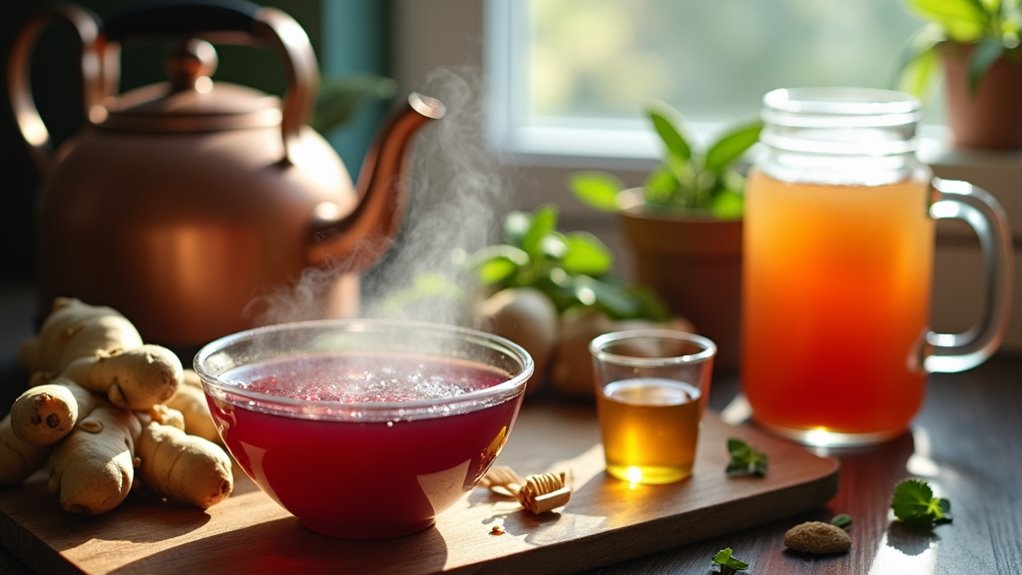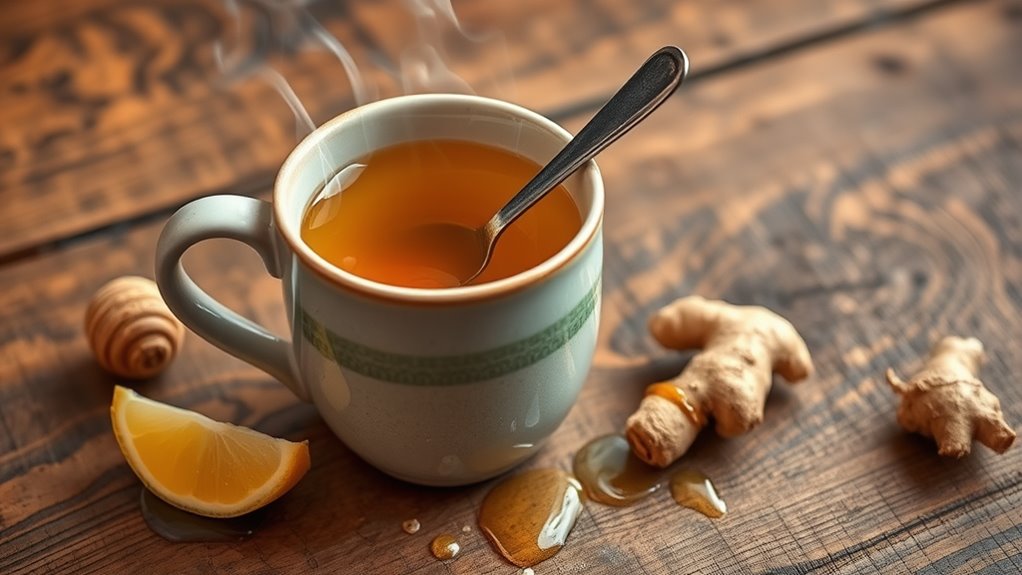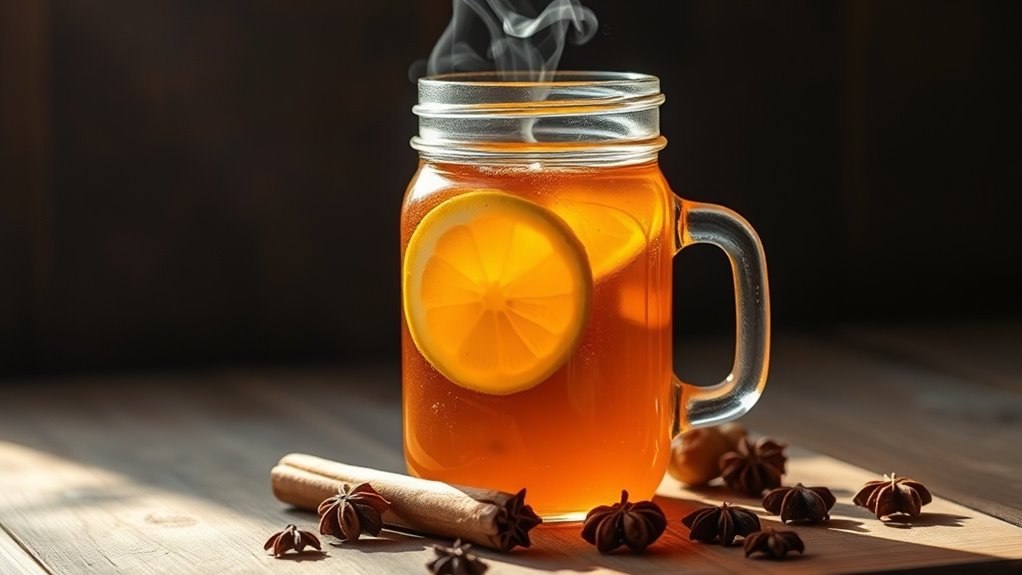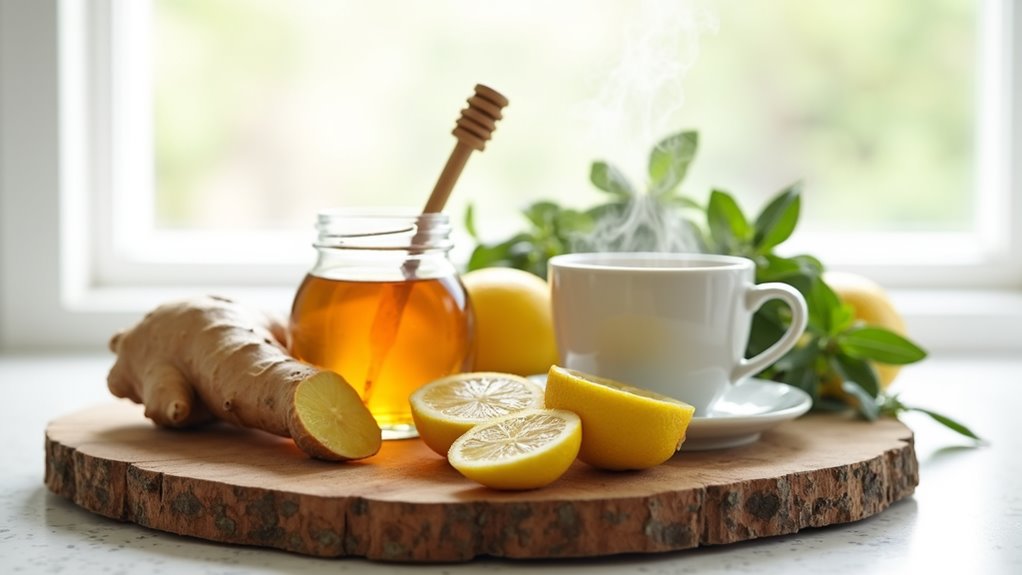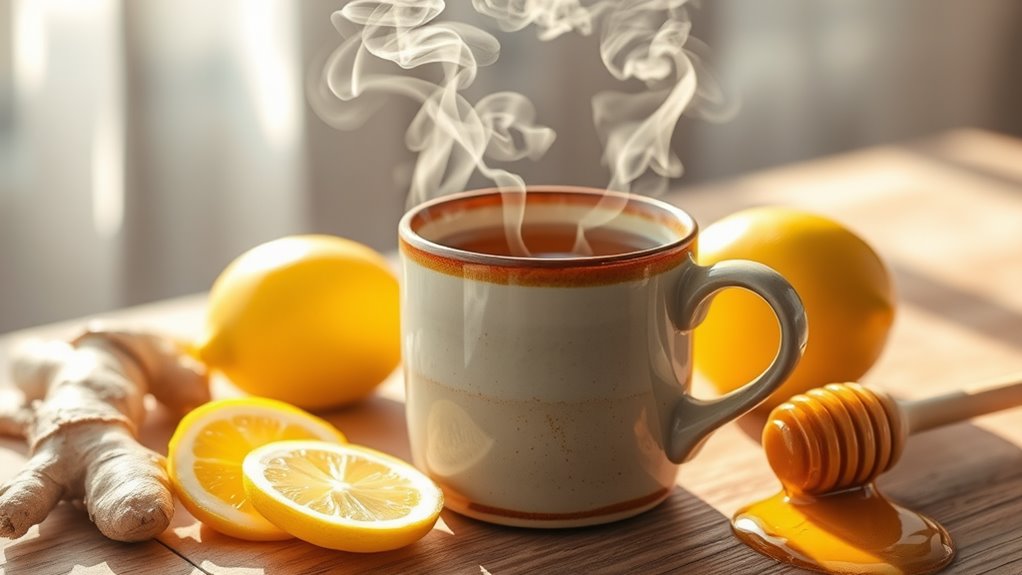Natural Way to Beat Cold Sores Before They Spread
At the first signs of tingling or burning, you’ll want to act quickly to prevent a full cold sore outbreak. Apply raw honey or crushed garlic mixed with coconut oil directly to the affected area, as these natural antivirals can inhibit HSV-1 replication. Support your immune response with vitamin C, zinc, and adequate sleep while avoiding UV exposure and stress triggers. Understanding the vital 24-48 hour prodromal window can help you implement these natural interventions most effectively.
Understanding Cold Sore Triggers and Early Warning Signs
Ever felt that telltale tingling on your lip that signals an impending cold sore outbreak? This initial sensation, known as the prodromal phase, is your first opportunity to implement cold sores remedies before blisters form.
Common triggers include UV exposure, stress, hormonal changes, and compromised immunity.
You’ll notice increased sensitivity, redness, and mild burning 24-48 hours before visible blisters appear.
The herpes simplex virus (HSV-1) reactivates from dormancy when triggered, traveling through nerve endings to your skin’s surface.
Recognizing these early warning signs allows you to take immediate preventive action. Starting antiviral medications at the first sign of symptoms can significantly reduce healing time and pain.
Essential Natural Remedies From Your Kitchen
The moment you detect early cold sore symptoms, your kitchen can become your first line of defense.
Apply raw honey directly to the affected area; its antimicrobial properties help fight the herpes simplex virus.
Crush fresh garlic and mix with coconut oil for a potent antiviral paste.
Cold-pressed aloe vera gel provides both pain relief and healing compounds.
Create an ice pack using frozen peppermint tea bags, which combines cold therapy with menthol’s numbing effects.
For quick relief, dab apple cider vinegar on the site using a cotton swab – its acidic nature helps inhibit viral replication. Additionally, using L-lysine can enhance the effectiveness of these remedies by blocking arginine, essential for virus replication.
Proven Lifestyle Changes to Prevent Outbreaks
While medications can help manage cold sores, implementing specific lifestyle modifications greatly reduces outbreak frequency and severity.
You’ll need to minimize UV exposure by using SPF 30+ lip balm and limiting sun exposure between 10am-4pm.
Manage stress through meditation, regular exercise, and adequate sleep.
Maintain a balanced diet rich in lysine while reducing arginine-containing foods like nuts and chocolate.
During active infections, don’t touch the sores, and replace your toothbrush once healing begins.
Keep your immune system strong by taking vitamin C, zinc supplements, and staying hydrated.
If you’re prone to frequent outbreaks, avoid sharing utensils or intimate contact during prodromal symptoms. Additionally, incorporating daily meditation or deep breathing exercises can effectively reduce anxiety and combat stress.
Boosting Your Immune System Naturally
Building a robust immune system provides your body with natural defenses against cold sore outbreaks.
You’ll need to maintain adequate vitamin C levels through citrus fruits, bell peppers, and leafy greens.
Incorporate zinc-rich foods like pumpkin seeds and lean meats, while adding immune-boosting herbs such as echinacea and astragalus to your diet.
Getting 7-9 hours of quality sleep allows your immune cells to regenerate effectively.
Regular moderate exercise stimulates white blood cell production and circulation.
You should also manage your stress levels through meditation or yoga, as cortisol suppresses immune function and can trigger viral reactivation. Additionally, natural remedies have been shown to enhance immune responses, further protecting against cold sores.
When to Start Treatment for Best Results
Recognizing early warning signs of a cold sore enables you to start treatment during the crucial prodromal phase.
This initial 24-48 hour window offers your best opportunity to minimize viral replication and reduce outbreak severity.
- Tingling, burning, or itching sensation at the infection site indicates virus reactivation
- Mild swelling, redness, or skin tenderness signals inflammatory response beginning
- Skin tightness or numbness around lips suggests nerve involvement
- Lymph node swelling near jaw suggests immune system activation
If you experience these symptoms, begin your antiviral protocol immediately.
Fast-acting treatments that target stages of viral replication can significantly enhance the effectiveness of your intervention.
Early intervention can reduce healing time by 30-50% and may prevent full lesion formation.


